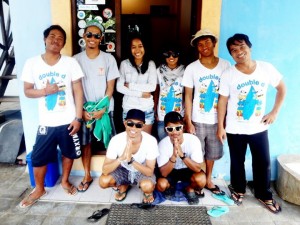Alternative Issue: Tourism Threatens Balinese Culture
As immigration and tourism soars in Bali, locals are clamping down more than ever to preserve their unique Hindu culture and island beauty.
Made Dedik, Balinese local and owner of Double D Surf School at Seminyak Beach is no exception, and vehemently believes in protecting the island he grew up on. Double D stands for Damai Damai which translates as “great peace”.
He runs a locally- owned, locally- operated school just a few kilometres down the beach from notorious tourist hotspot, Kuta, and has seen the area change immeasurably over the past two decades.
“I used to be able to see the ocean from my house, and now there are blocks of shops and bars blocking the view. Investment has gone crazy, not only foreign investors, but the government allowing it to happen. They need to back locals more, but they only care about money unfortunately.”
Dedik and his twin brother, Deduk have watched their business grow into a successful centre, catering to hundreds of visitors every year, but it hasn’t always been easy.
“I worked for a western- run surf school and was treated badly, as if I was lower down the pecking order for being a local. So I decided to set up my own surf school and be my own boss, employing and empowering other young Balinese people. I don’t want people to make money from me and not pay me a fair wage, they often pay westerners ten times more than us.”
Many tourists stick to more commercial areas, but it is the locals that really make the island special.
They give it the energy and beauty people travel thousands of miles to experience and locals should be allowed to retain the wealth tourism is bringing.
“I believe that although western interest in Bali brings money, it is up to the Balinese not to allow some employers to keep them down. If locals take control of their own businesses then they can benefit from outside interest in their home country, and improve prospects for our young people. Now we have Balinese people going to university which never used to happen before.”
Despite hostility to western influence in Bali, some companies feel they are benefitting from a more mixed demographic of employees. Bali and Beyond Magazine is Indonesian- owned, and is also located in the Kuta region. Goestamar Ardibrata, General Manager at the publication, believes having expat staff has helped the team, “We benefit from the diversity of our staff, our Senior Editor is Indonesian-American, this offers a unique global insight.”
Aside from a few rare positive examples, Dedik and other Balinese business owners continue to fight the increasing western domination of their island, to keep their culture alive.
“If foreigners come here and respect the culture and the people, then it’s fine, but usually they don’t. If they want a visa here it’s easy, but if we want one in their country, we can’t. Is that fair? Now I just think, welcome to Bali, now go home.”

























